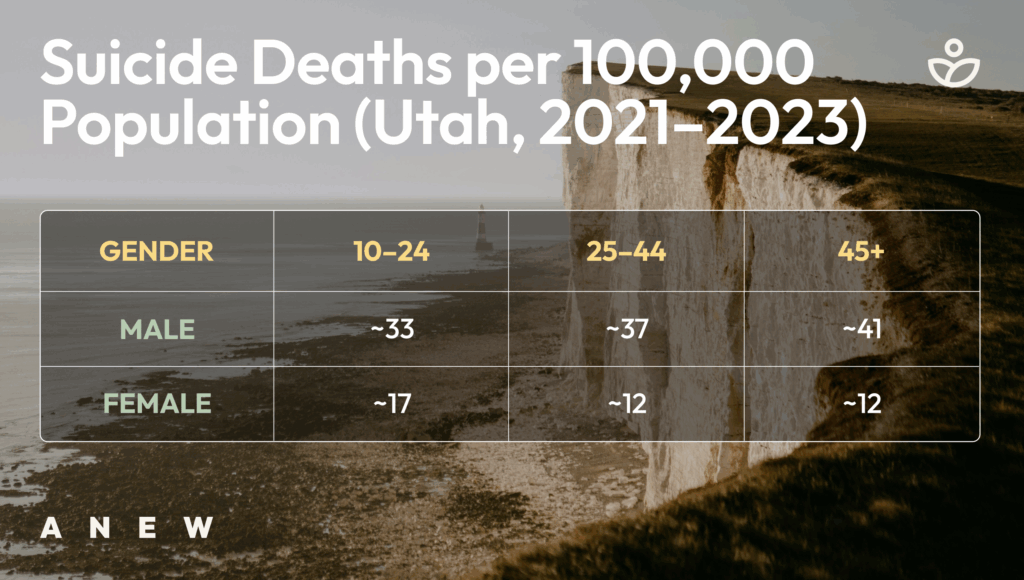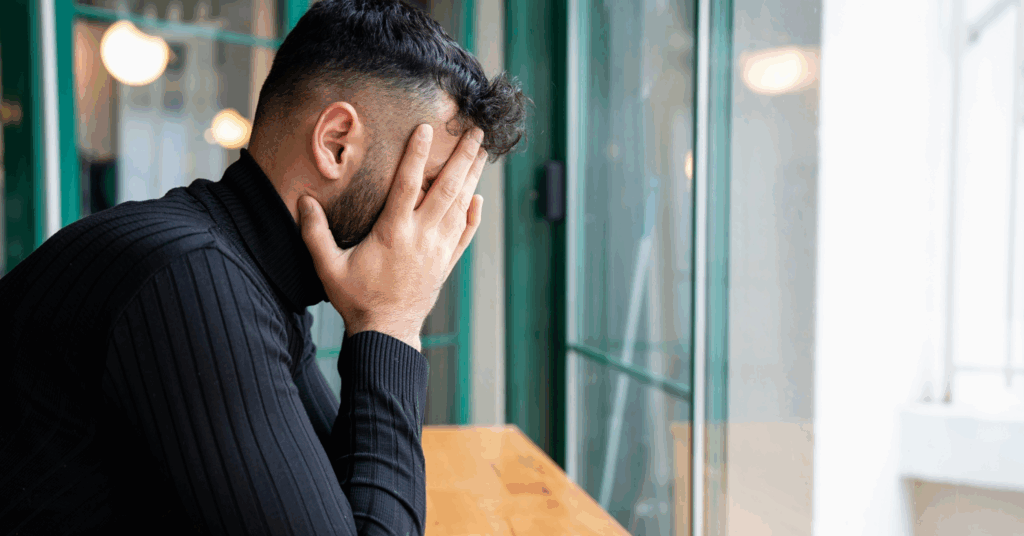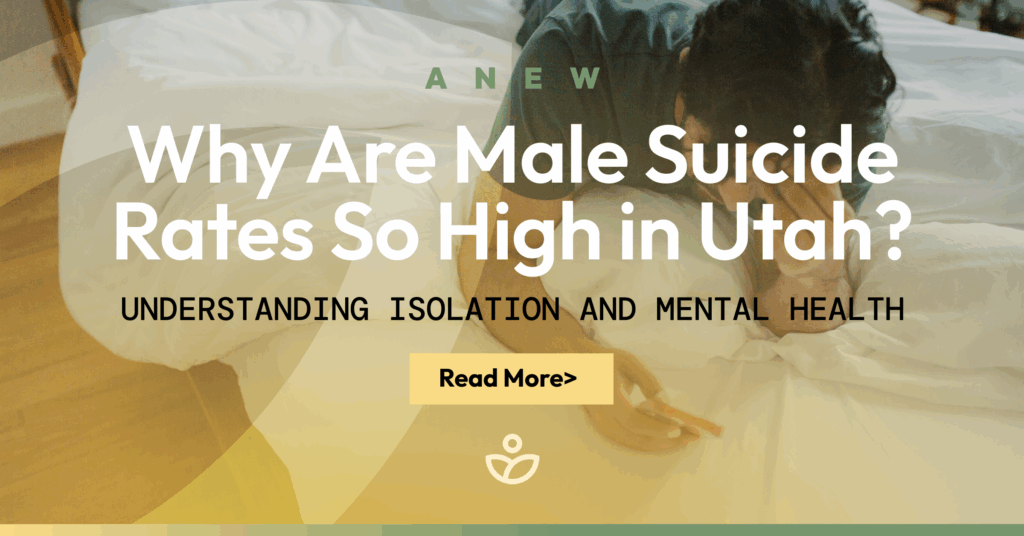Utah is known for its strong communities, thriving economy, and breathtaking landscapes. It’s a place many call home with pride. Yet even here, in a place where tradition, community, and family values are woven into everyday life, many men are quietly struggling. Suicide remains a leading cause of death among Utah men, and the state consistently ranks among the highest nationwide for male suicide rates.
So why are male suicide rates so high in Utah? The answer isn’t simple. It intersects with culture, stigma, and a growing male loneliness mental health crisis. This article breaks down what’s really going on and what can be done to turn the tide.
The Stark Numbers: Male Suicide in Utah
According to the Utah Department of Health, suicide is the leading cause of death for Utah males aged 10 to 24 and the second-leading cause for those aged 25 to 44. Men make up nearly 80% of suicides in the state.
Even more concerning? Many of these men had never received formal mental health treatment before their deaths. The gap between suffering and support remains wide, and it’s costing lives.

Root Causes: Why Utah Men Are at Risk
1. Cultural Pressure to “Man Up”
Utah culture often values stoicism, strength, and self-reliance, especially among men. From a young age, boys are taught to suppress vulnerability and power through hardship. But emotional suppression isn’t resilience. Over time, it breeds disconnection and despair.
When emotional struggles surface, many men don’t feel safe asking for help. Instead, they turn inward or to unhealthy coping mechanisms like alcohol, drugs, or emotional withdrawal.
2. Religious Perfectionism
Faith is deeply woven into the fabric of life in Utah, especially for members of the Church of Jesus Christ of Latter-day Saints. For many, it provides meaning, purpose, and a strong sense of community. It can be a profound source of hope and strength.
But in some cases, high spiritual standards may unintentionally lead individuals to place intense pressure on themselves. When someone feels they are falling short as a provider, a parent, or a leader, they might internalize that struggle as a personal or spiritual failure rather than a health issue. These internalized expectations can create barriers to seeking help, making it harder to say, “I need support.”
3. The Isolation Epidemic
Even in community-rich Utah, men are increasingly disconnected. National data shows that American men have fewer close friendships today than in decades past. For single men, those who leave their faith, or those navigating life transitions like divorce, unemployment, or retirement, the sense of loneliness can be crushing.
Isolation and depression in men often go hand in hand. Without emotional outlets or meaningful relationships, despair festers in silence.
4. Access to Firearms
Utah has one of the highest rates of gun ownership in the U.S. And while owning a firearm doesn’t cause suicide, it does make impulsive decisions far more lethal. Nearly 85% of Utah’s suicide deaths involve a firearm, and most of those deaths are male.
Why Don’t Men Ask for Help?
It’s not that men don’t feel pain. It’s that many feel they can’t express it. Common reasons men delay or avoid seeking mental health support:
- Fear of judgment or appearing weak
- Concerns about professional consequences
- Belief that therapy “won’t work”
- Lack of mental health education
- Not knowing where to start
In Utah, these barriers are magnified by a cultural climate that often equates masculinity with stoicism. The result? Men suffer in silence, sometimes until it’s too late.

What Can Be Done?
Normalize Emotional Vulnerability
Utah communities need more public conversations, especially among men, about depression, anxiety, trauma, and suicide. Vulnerability is not weakness. It’s strength in its most human form.
Promote Male-Friendly Mental Health Care
Therapy isn’t just about talking; it’s about solving. Male clients often respond better to goal-oriented, skills-based approaches like CBT (Cognitive Behavioral Therapy) or EMDR (Eye Movement Desensitization and Reprocessing).
Therapists trained in men’s mental health know how to build trust, engage without pressure, and foster change without condescension.
Expand Access to Rapid Relief Options
When depression hits hard, some men need more than talk therapy alone. That’s where newer interventions come in:
- TMS (Transcranial Magnetic Stimulation): Non-invasive and drug-free, TMS uses magnetic pulses to re-activate underperforming mood centers in the brain.
- IM Ketamine Therapy: Provides rapid symptom relief for severe or treatment-resistant depression.
- Spravato (Esketamine Nasal Spray): FDA-approved and insurance-covered in many cases, this innovative option helps break suicidal ideation cycles fast.
Anew Therapy: A Space for Men to Be Seen and Supported
At Anew Therapy in Sandy, Utah, we know what it means to carry heavy things and feel like you can’t set them down. We’ve heard the stories: the father who keeps it together until the kids are asleep, the veteran who can’t shake the feeling of being on high alert, the entrepreneur who built something big and feels more hollow by the day.
Our clinic is built to support men with real-world pressures and little patience for sugarcoating. We work with you to get to the root of what’s actually going on, not just what’s on the surface.
What we offer:
- Private, judgment-free mental health care that fits your life
- Same-week appointments so you’re not waiting around when things feel urgent
- Practical therapy approaches that help you make sense of your experience and get unstuck
- Breakthrough medical treatments like TMS, ketamine, and Spravato, especially for those who feel like nothing has worked before
- Clinicians who get it — some of us have been there too, and we won’t talk down to you or pretend to have all the answers
You don’t need a diagnosis to start. You don’t need to know the exact words. If all you can say is, “I’m not okay,” that’s enough. We can take it from there.Call, text, or book online. We’re here. Not just for when it gets unbearable, but for every day you want to feel a little more like yourself again.

If you or someone you know is in crisis, call the Suicide & Crisis Lifeline at 988. Help is free and available 24/7.

